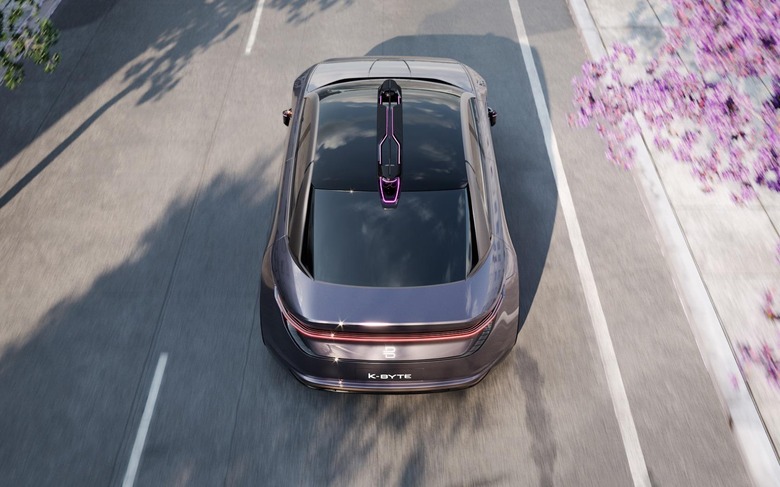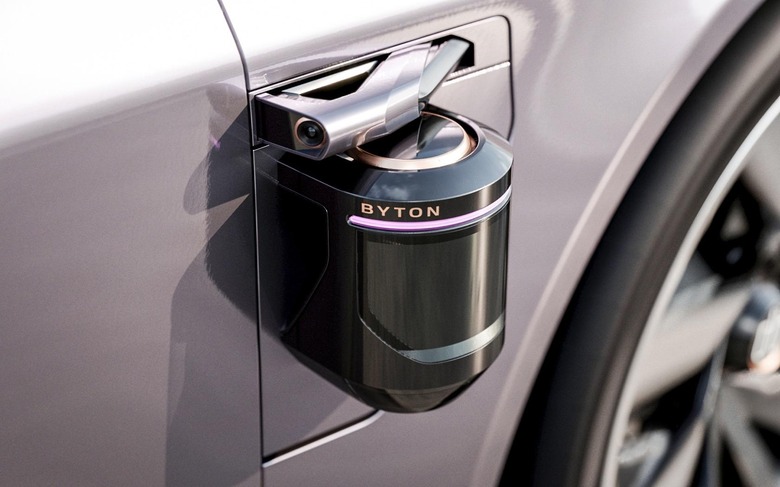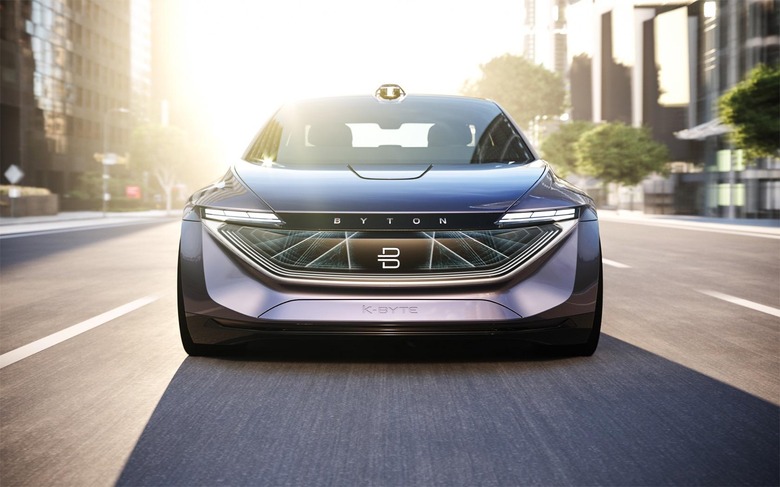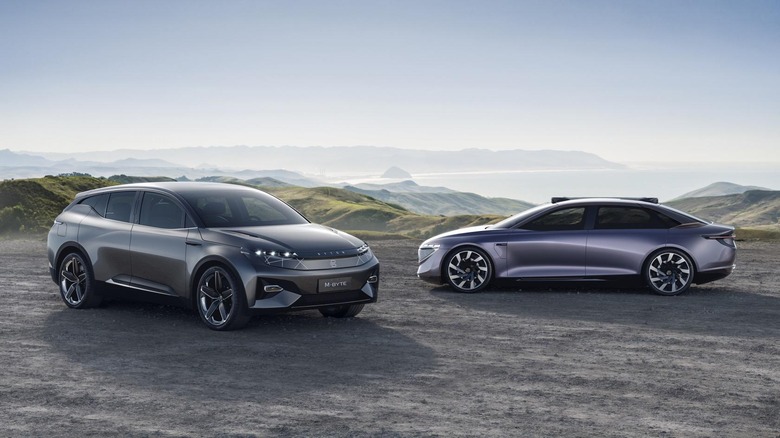Byton K-Byte Concept Sees Driverless Luxury On The Road By 2021
Byton impressed us at CES 2018 with its concept SUV, and now it's hoping to do the same with its autonomous luxury sedan, the Byton K-Byte Concept. Unveiled this week as a potential future challenger to luxe segment mainstays like Mercedes-Benz's S-Class and BMW's 7 Series, the K-Byte note only represents a Chinese twist on high-end transportation, but one which can – at least some of the time – replace the driver.
In fact, Byton is targeting Level 4 autonomous driving. That means, while the K-Byte Concept could in theory be left to drive itself in certain road conditions, it wouldn't be expected to do so in all conditions. It's arguably a more practical approach than aiming for a Level 5 vehicle that would be expected to do everything, all the time.

Byton has teamed up with autonomous tech developer Aurora on the car – which also announced a similar partnership with Hyundai earlier this year – and the two firms are aiming for a fleet of K-Byte vehicles on the road by the end of 2020. Those will only be prototypes for Level 4 testing, mind. Mass production and actual sales is still at an unspecified point down the line.
With the split between human-piloted and autonomous driving, the K-Byte takes a different approach to other driverless vehicles we've seen in terms of sensors. Byton has designed the car with retractable LIDAR, for example: the front and rear laser scanners are mounted on the roof section, but the side LIDAR arrays are underneath the side mirrors and only extend when the car is in driverless mode.

That means they keep out of the way of sight-lines when a human driver is operating the sedan, along with when making tighter parking maneuvers. Byton also envisages them lighting up in different colors and patterns, to be used to communicate to pedestrians what the car is doing.

As for the rest of the car, there's a big focus on expanding the side and roof glass, to keep the cabin light and airy. Light strips and Byton's Smart Surfaces are also used again, carried over from the SUV the automaker showed off at CES 2018 earlier in the year.

That's now been renamed the Byton M-Byte Concept, and the two cars will be the first of three models in the series. Under the skin, though they may look different, the architecture is the same. Indeed, Byton is counting on that commonality of platform to accelerate production. The goal is to have the luxury sedan on sale in 2021, in fact.
